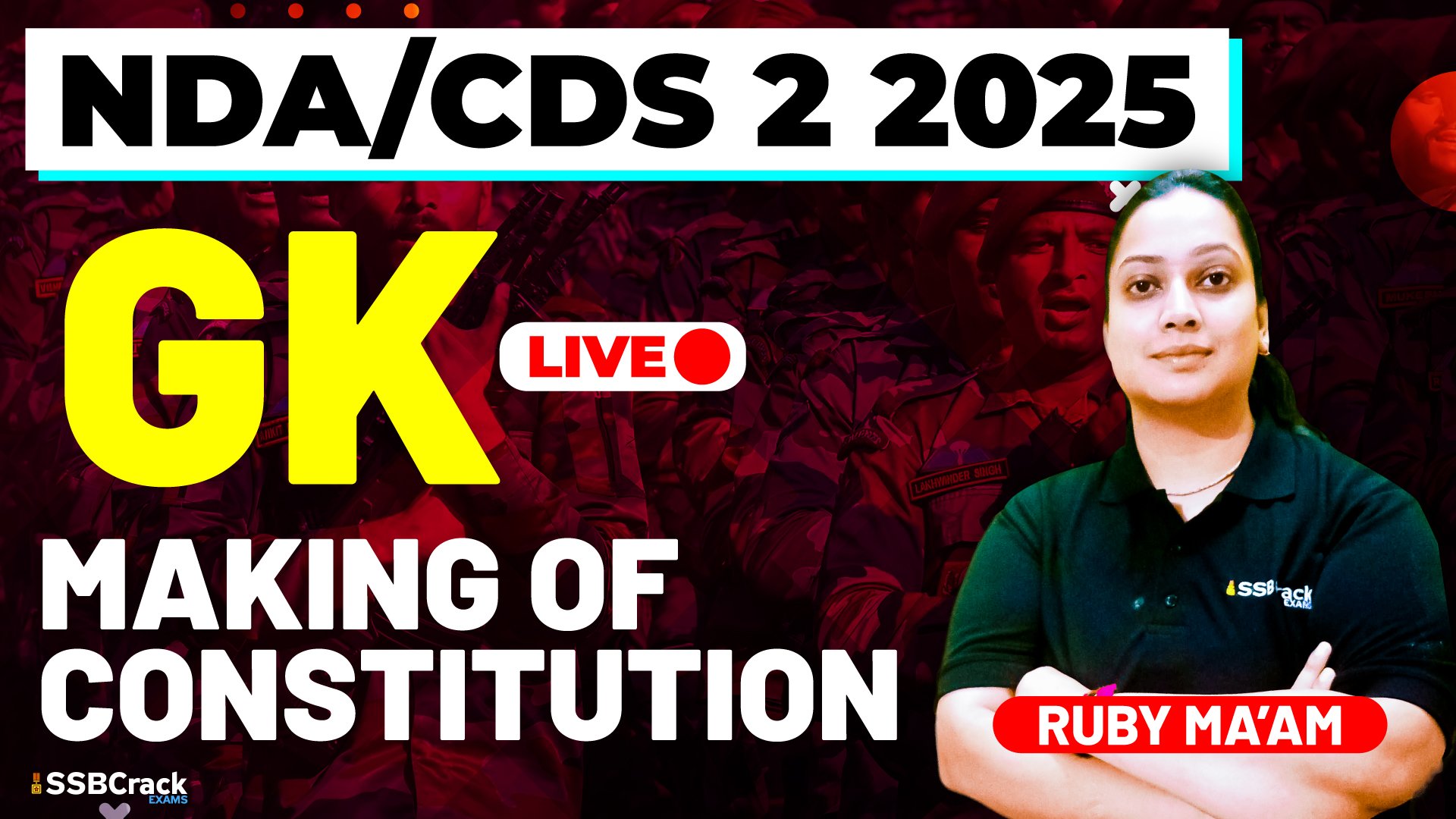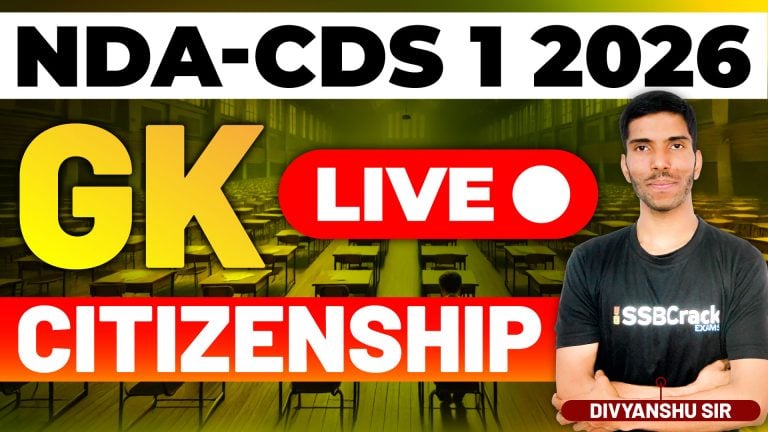For every aspirant preparing for the National Defence Academy (NDA) or Combined Defence Services (CDS) examinations, Polity remains one of the most vital segments of the syllabus. Among all topics, understanding the making of the Indian Constitution is not just essential for scoring marks but also for developing a deeper sense of India’s democratic and institutional foundation.
Why Is the Making of the Indian Constitution Important?
The Constitution of India is the supreme law of the land. It defines the political principles, establishes the structure, procedures, powers, and duties of government institutions, and sets out fundamental rights and duties of citizens. Knowing how this remarkable document was made provides crucial insights into India’s democratic journey.
1. Foundation of Indian Polity
The making of the Constitution laid the foundation of modern Indian democracy. It brought together the vision of leaders like Dr. B.R. Ambedkar, Jawaharlal Nehru, Sardar Patel, and others who framed a constitution that was inclusive, forward-looking, and robust.
2. Understanding Key Concepts
Knowing the making of the Constitution helps aspirants understand:
- How and why India became a sovereign, socialist, secular, and democratic republic.
- The importance of Federalism, Separation of Powers, and Judicial Review.
- The inclusion of Fundamental Rights, Directive Principles, and Fundamental Duties.
These are frequently asked in UPSC and defence exams.
3. Role of the Constituent Assembly
The Constituent Assembly, which first met on 9th December 1946, comprised representatives from all walks of life. It deliberated for nearly 3 years to ensure every section of society was represented in the Constitution. Dr. B.R. Ambedkar, as the Chairman of the Drafting Committee, played a crucial role in shaping the document.
Understanding the debates and ideologies behind various articles helps aspirants develop a conceptual clarity, essential for both objective and descriptive questions.
4. Interlinking with Current Affairs
Many contemporary issues—like debates on freedom of speech, secularism, reservation policies, and judicial independence—can be better understood when you know the original intent and evolution of the Constitution.
For instance, discussions about Article 370, CAA-NRC, or the role of the Governor are all rooted in constitutional interpretation.
5. Boost in Interview and SSB
An officer aspirant must know the principles on which India stands. Knowledge of the Constitution’s making shows that you understand India’s unity in diversity, democratic ethos, and institutional integrity. This knowledge often helps during:
- UPSC CDS interview questions
- SSB Group Discussions and Personal Interviews
How to Prepare This Topic for NDA/CDS
- NCERT Class 11 Political Science – Chapters on the Constitution and its making.
- M. Laxmikanth – Indian Polity – Focus on chapters like the Preamble, Features of the Constitution, and the Constituent Assembly.
- Mock Tests & PYQs – Solve questions based on Articles, historical timelines, and constitutional bodies.
Final Thoughts
As a future officer in the armed forces, understanding the Constitution’s creation equips you with leadership values, respect for democratic institutions, and a clear understanding of your role in safeguarding the Republic. The Constitution is not just a legal document; it’s a vision of India’s destiny. Knowing how it came into being is the first step in becoming a responsible citizen—and a true defender of the nation.







